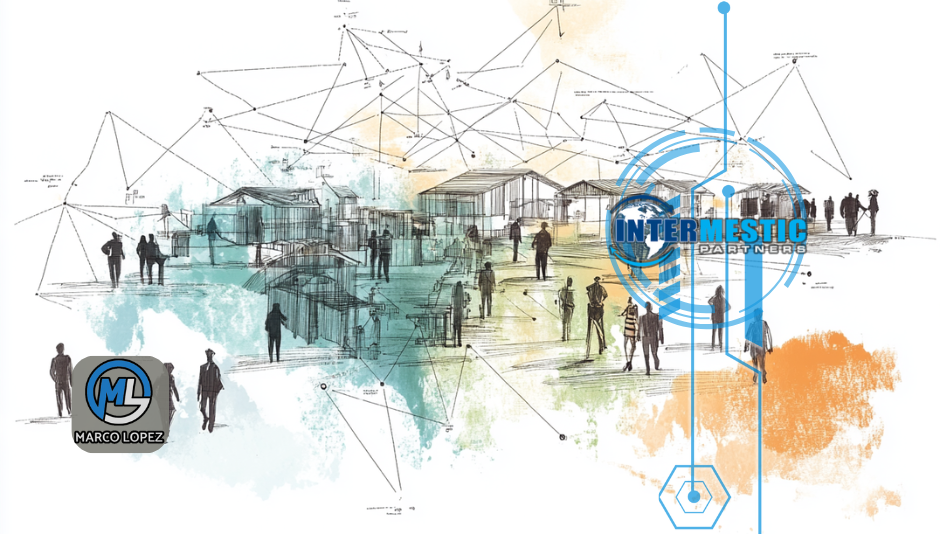Bridging Borders: How Nonprofits Are Leading the Charge in Global Community Development
- Marco Lopez

- May 5, 2025
- 2 min read

Why Nonprofits Matter Now More Than Ever
In an increasingly interconnected world, nonprofit organizations are emerging as key players in cross-border community development. These mission-driven institutions are tackling challenges governments and the private sector can’t—or won’t—solve alone.
From my work with Intermestic Partners—an international advisory firm I founded in 2011—to collaborations with the Carlos Slim Foundation and efforts supporting migrant communities, I’ve seen the transformative power of nonprofits in bridging policy gaps and empowering lives on both sides of the border.
The Expansive Role of Nonprofits
Nonprofits serve as:
Service providers filling critical gaps in education, health, and housing
Advocates giving voice to underserved populations
Community builders enhancing civic participation and local leadership
In marginalized areas, they are often the only actors truly embedded in the day-to-day struggles and aspirations of the people they serve.
Tackling Cross-Border Challenges
Working across borders adds complexity: different legal systems, languages, and funding landscapes. Yet, nonprofits have stepped up, offering innovative, flexible, and locally grounded solutions.
Examples include:
🩺 Doctors Without Borders: Delivering emergency healthcare in the world’s most dangerous zones
🕊 Border Angels: Providing humanitarian aid and advocating for immigration reform along the U.S.-Mexico border
💻 AccesoLatino.org: Powered by the Carlos Slim Foundation, this platform delivers free digital resources—education, legal advice, job training—to immigrants and their families
Having collaborated with the Carlos Slim Foundation and AccesoLatino, I’ve witnessed how digital platforms can extend nonprofit reach and empower communities at scale—a game-changer for cross-border work.
The Humanitarian Data Exchange (HDX), run by the UN, shares crisis data openly and globally—enhancing rapid, informed nonprofit response.
Emerging Trends in Cross-Border Nonprofit Work
1. Digital Transformation
Nonprofits are using AI, data platforms, and mobile apps to improve delivery and transparency.
2. Sustainable Development Integration
Eco-friendly practices and long-term impact metrics are now baked into nonprofit missions.
3. Partnership-Centric Models
Nonprofits are forging powerful coalitions with governments, tech companies, and other NGOs to scale solutions.
What’s Next
To maximize their impact, nonprofits need:
📶 Investment in digital tools
🌱 Support for sustainability initiatives
🌐 Cross-sector and binational partnerships
At Intermestic Partners, we advise nonprofits and social enterprises on navigating this complex landscape—connecting strategy, policy, and community needs.
Conclusion: Community at the Core
Nonprofits are not just service providers—they’re architects of inclusive, sustainable, and borderless progress. In an era of polarization, they remind us that human dignity transcends geography.
Whether you're a policymaker, donor, or entrepreneur, now is the time to support and engage with these organizations. The future of development is collaborative—and nonprofits are showing us how to lead it.
Interested in building your own cross-border initiative or supporting nonprofits making a difference? Connect with Intermestic Partners to get started.
.png)




Having collaborated with the Carlos Slim Foundation and Salesforce Identity-and-Access-Management-Architect Practice Test, I’ve witnessed how digital platforms can extend nonprofit reach and empower communities at scale—a game-changer for cross-border work.